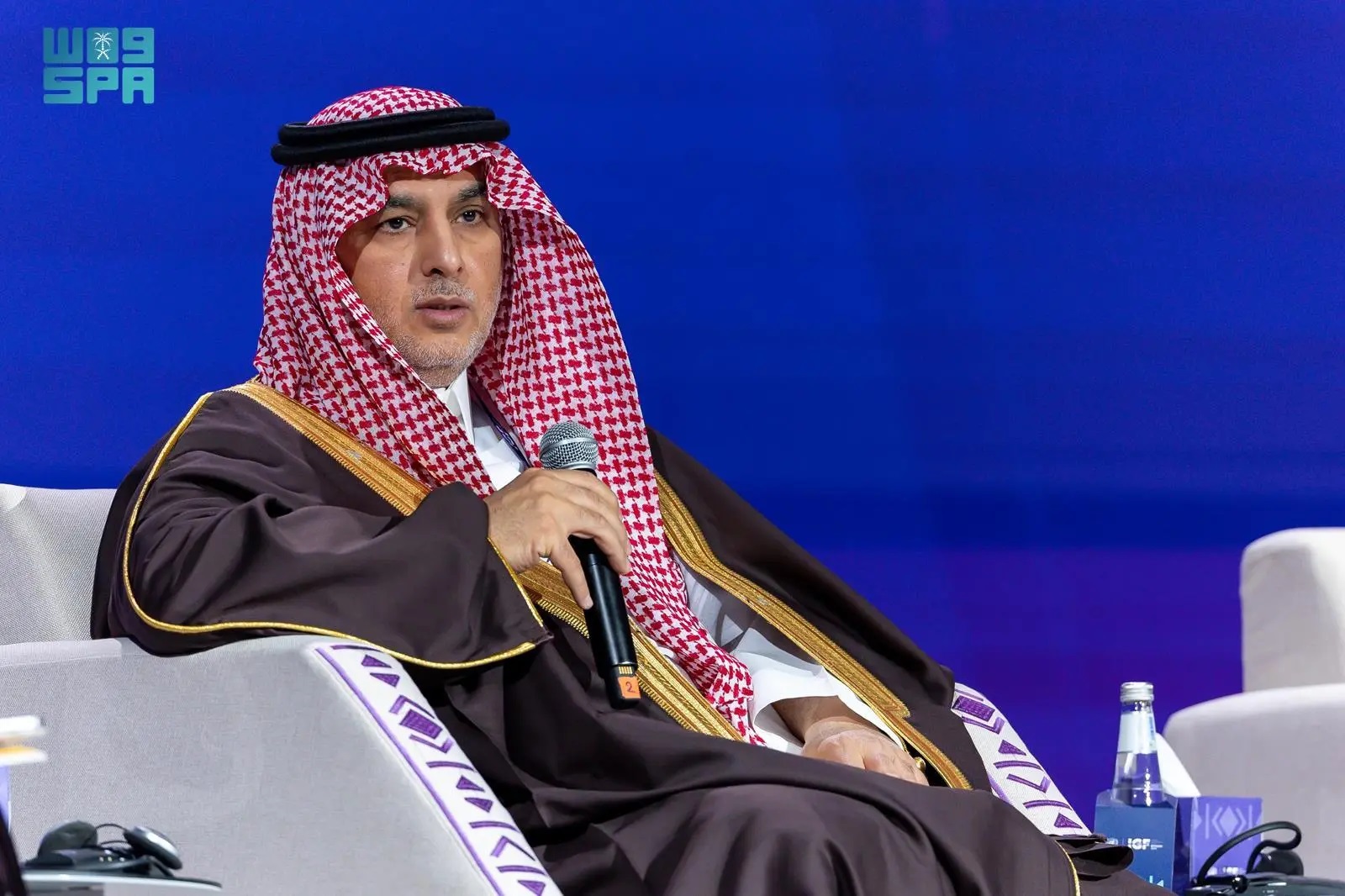
SDAIA President: Saudi Arabia Ranks Third Globally in OECD AI Policy Observatory for Regulation Efforts
President of the Saudi Data and Artificial Intelligence Authority (SDAIA) Dr. Abdullah bin Sharaf Alghamdi announced that Saudi Arabia has been ranked third globally, following the United States and the United Kingdom, in the Organization for Economic Co-operation and Development’s (OECD) AI Policy Observatory, reflecting the Kingdom's outstanding efforts in AI regulation.
Speaking during panel discussion on rapidly evolving technologies and building a safe, sustainable digital space at the Internet Governance Forum held at the King Abdulaziz International Conference Center in Riyadh today, he attributed this recognition to placing ethics at the core of Saudi Arabia’s AI initiatives since SDAIA's establishment in 2019, underscoring international significance of this focus.
He highlighted the AI Ethics Early Adopters initiative, which offers a series of incentives to encourage adherence to ethical standards, boost trust in AI products, and promote mature practices for developing AI systems in both products and services. He also underscored the importance of the International Center for AI Research and Ethics (ICAIRE), established in Riyadh under the sponsorship of the United Nations Educational, Scientific and Cultural Organization (UNESCO), which focuses on policy advisory and capacity building in AI ethics. This initiative reinforces the Kingdom’s leadership in this vital area, with UNESCO selecting the center as its regional and global partner for advancing the AI ethics agenda.
Alghamdi also cited UNESCO’s recent report on Saudi Arabia's readiness in AI, which commended the Kingdom’s achievements in this advanced technical field. The report, part of UNESCO's initiative to assist member states in assessing their readiness for adopting AI in alignment with ethical values and international standards, further validates Saudi Arabia’s progress.
Discussing Saudi Arabia’s contributions to shaping the global AI agenda, Alghamdi highlighted the Kingdom’s readiness to share its expertise with the world. During the inaugural Global AI Summit in 2020, a consultative session was held to discuss establishing a UN-affiliated AI advisory body. In 2023, UN Secretary-General António Guterres announced the formation of this advisory body, to which Saudi Arabia has made significant contributions.
At the third Global AI Summit (GAIN Summit) in 2024, several major initiatives and international partnerships were launched, including the joint unveiling of the International Telecommunication Union AI Readiness Framework, a partnership with the OECD to enhance the AI Policy Observatory, and the launch of the Riyadh Charter on Artificial Intelligence for the Islamic World in partnership with the Islamic World Educational, Scientific and Cultural Organization. The Kingdom also worked with the Gulf Cooperation Council and the Arab League to organize regional workshops aimed at raising awareness about ethical evaluation tools for AI.
Alghamdi emphasized that bridging the gap between governance and innovation requires trust, accountability, safety, and collaboration. He noted that trust is built through transparency and explainability in AI systems, accountability and safety rely on clear guidelines and proactive risk management, and collaboration between governments, private entities, and academia ensures shared goals and impactful progress. These priorities would position Saudi Arabia as a global leader in driving AI for the benefit of humanity.








